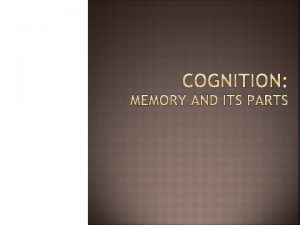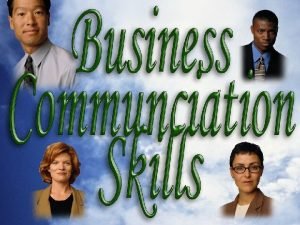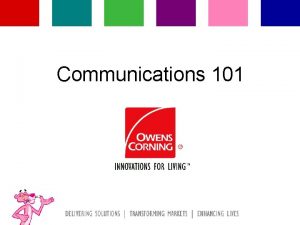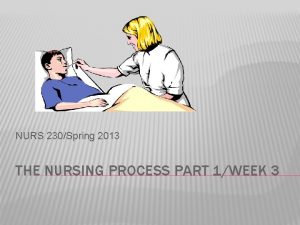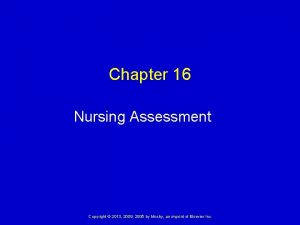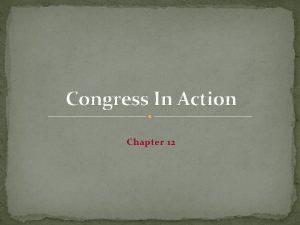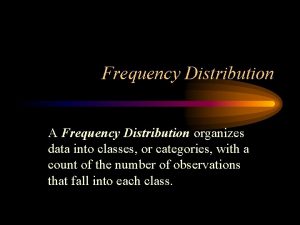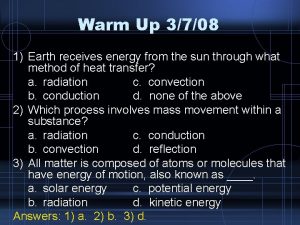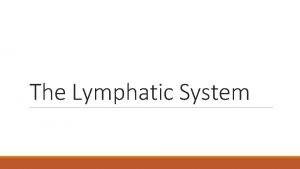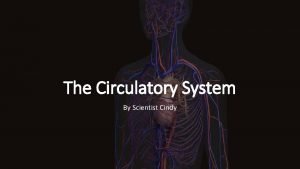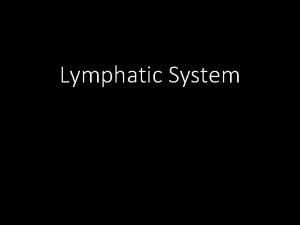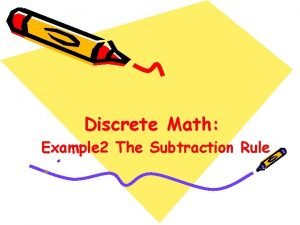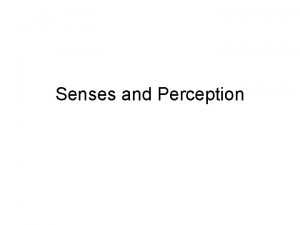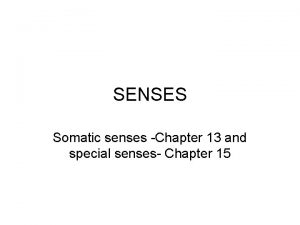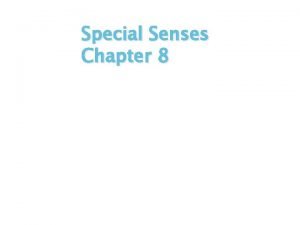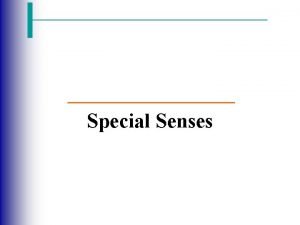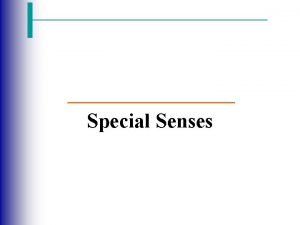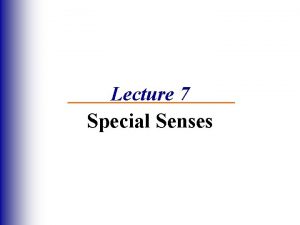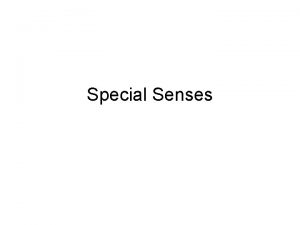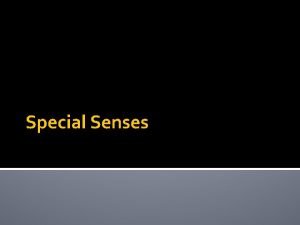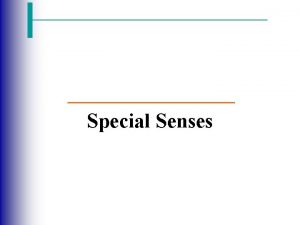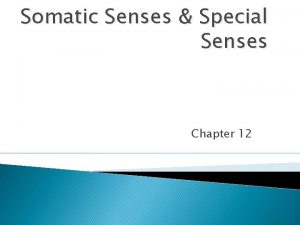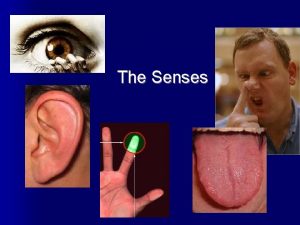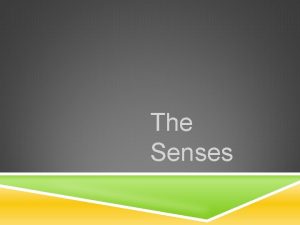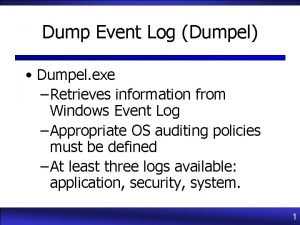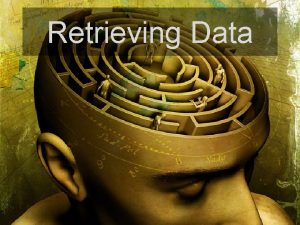MEMORY MEMORY receives information senses organizes retrieves and






















- Slides: 22

MEMORY

MEMORY � receives information (senses) � organizes � retrieves and alters as it stores it

THREE PROCESSES OF MEMORY: � Encoding - convert information to form usable in brain’s storage (PUT IT IN) � Storage - holding onto information (KEEP IT IN) � Retrieval - getting information in storage to form to be used (GET IT OUT)

LEVELS-OF-PROCESSING MODEL � Levels-of-processing model � more "deeply processed” � processed according to its meaning vs. basic characteristics remembered more efficiently and for longer! Bloom’s taxonomy!


THREE-STAGE PROCESS OF MEMORY � Into sensory system Briefly registers (sensory memory) � Selective attention filters into short-term memory Held while attention (rehearsal) continues � If enough rehearsal (maintenance/elaboration), will enter/be stored (long-term memory)

SHORT-TERM MEMORY (STM) � working memory � information held for brief periods while being used � Selective attention

SHORT-TERM MEMORY � Chunking – bits of information combined into meaningful units (chunks) = more information can be held in STM � e. g. language learning

SHORT-TERM MEMORY � Maintenance rehearsal - saying some information over and over in one’s head in order to maintain it in STM � STMs tend to be encoded in auditory form

LONG-TERM MEMORY (LTM) � information placed to be kept more or less permanently � Elaborative rehearsal - transferring information from STM into LTM � making meaningful in some way � Metacognition!

TYPES OF LTM � Procedural memory - skills, procedures, habits, conditioned responses � not conscious, but affect conscious behavior � Declarative memory – conscious and known (memory for facts)

MORE ON PROCEDURAL MEMORY � Skills people know how to do, implicit � Also emotional associations, habits, simple conditioned reflexes � may � IAT or may not be in conscious awareness (implicit associations)

MORE ON DECLARATIVE MEMORY � All things people know, conscious/explicit � Semantic memory - general knowledge � Language, formal education � Episodic memory - personal information not readily available to others � daily activities, events


CUES TO HELP REMEMBER � Retrieval cue � Encoding specificity - improved if related information (surroundings/physiological state) available also available when retrieved � Final exam, studying

RECALL � Serial position effect - beginning and end remembered more accurately � Primacy effect - beginning � Recency effect - end � Job interviews, contests

RECOGNITION � False positive – error of recognition � think recognize stimulus not actually in memory

EYEWITNESS TESTIMONY � Elizabeth Loftus study � what people see and hear about event after the fact can easily affect accuracy of memories of that event � Eye witness testimony not always reliable!



ALZHEIMER’S DISEASE � Primary memory difficulty - anterograde amnesia (although retrograde amnesia can also occur) � Drugs to slow or stop the progression of Alzheimer’s disease

BEST WAYS TO PREVENT ALZHEIMER’S DISEASE �Exercise!!! � Maintain a healthy weight � Stay engaged (intellectually AND socially) � Learn new things � Protect your head � Meditate
 The arrangement of a phenomenon across earth's surface is
The arrangement of a phenomenon across earth's surface is Encodes stores and retrieves information
Encodes stores and retrieves information What is the difference between somatic and special senses
What is the difference between somatic and special senses General senses vs special senses
General senses vs special senses When a sender selects and organizes message to be sent
When a sender selects and organizes message to be sent Vertical mapping organizes and clarifies your
Vertical mapping organizes and clarifies your Nursing diagnosis of lung cancer
Nursing diagnosis of lung cancer The nursing process organizes your approach
The nursing process organizes your approach When a melodic idea is presented by one voice
When a melodic idea is presented by one voice Section 1 quiz congress organizes
Section 1 quiz congress organizes The nursing process organizes your approach
The nursing process organizes your approach Chapter 12 congress organizes
Chapter 12 congress organizes Organizes data into categories called classes
Organizes data into categories called classes Haitian
Haitian When earth receives energy from the sun, ____.
When earth receives energy from the sun, ____. The lymphatic system consists of
The lymphatic system consists of Tribeculated
Tribeculated Hurrah for the fourth of july cartoon
Hurrah for the fourth of july cartoon The purified lymph with lymphocytes and antibodies added
The purified lymph with lymphocytes and antibodies added Subtraction rule example
Subtraction rule example Ligamentum arteriosum function
Ligamentum arteriosum function Ms jones isn't as nice ms smith
Ms jones isn't as nice ms smith Average weather conditions over time
Average weather conditions over time

